Overview: Content Strategy
Are you creating the content your audience actually wants to consume, or are you just talking about yourself?
What sort of content will your audience read, out of the endless supply at their fingertips? Formal news articles or blog posts from your staff and readers? An event calendar updated daily, or a longread every month? Static web pages, or a deeply granular database with faceted search?
And have you figured out how to get it to them, develop engagement around it, and translate that success into something concrete, fulfilling your mission? How many of the friends and organisations in your network amplify your message regularly?
Need answers? Get in touch.
More services: start with Communication strategy.
Relevant resources

Vaccine denial is dangerous... you might think it would be of the utmost importance to try to talk some sense into these people. But there's a problem: According to a major new study in the journal Pediatrics, trying to do so may actually make the problem worse.

People on opposing sides of the political spectrum read the same articles and then the same corrections, and when new evidence was interpreted as threatening to their beliefs, they doubled down. The corrections backfired. Once something is added to your collection of beliefs, you protect it from harm... Just as confirmation bias shields you when y…

A little bit of something bad helps you resist a full-blown case... Inoculating text requires two elements. First, it includes an explicit warning about the danger of being misled by misinformation. Second, you need to provide counterarguments explaining the flaws in that misinformation... explaining the misinformation technique completely neutra…

a bias likely to cloud the minds of the audience – the halo effect.... when we see something we like or dislike, and associate this emotional reaction with something else... “illusory truth effect.” This bias causes our brains to perceive something as true just because we hear it repeated... the illusion of control bias occurs when we perceive o…
I’ve been meaning to blog about the ‘backfire effect’ cognitive bias since first coming across it last December. It went to the top of my ToBlog list thanks to a little serendipity...
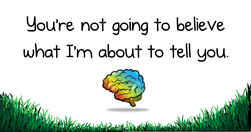
This comic was inspired by this three-part series on the backfire effect from the You Are Not So Smart Podcast.
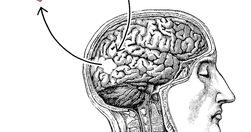
for your most cherished beliefs about things like climate change or vaccines or Republicans, instead of changing your mind in the face of challenging evidence or compelling counterarguments, you resist... your challenged beliefs then grow stronger.

The objectivity that matters so much in science is not primarily a characteristic of individual scientists but of scientific communities. Scientists rarely refute their own pet hypotheses... Their fellow scientists will be happy to expose these hypotheses to severe testing... Not being afraid of being wrong... is a value we could promote... Intel…

"conservatives who received a correction telling them that Iraq did not have [Weapons of Mass Destruction] were more likely to believe that Iraq had WMD." ... fact-checking reinforced the mistaken belief... the "backfire effect."A new paper, however, suggests the "backfire effect" may be a very rare phenomenon.... People are extra happy to adopt a…

There are always “alternative facts.” What matters is how we decide which of those alternative facts are most likely to be true... Conway’s statement based ... on a much older tradition of deciding what is true: the argument from authority.... the culmination of a long retreat from the scientific perspective on truth... pitted against creationist…

If reason is designed to generate sound judgments, then it’s hard to conceive of a more serious design flaw than confirmation bias... a trait that should have been selected against. ... it must have some adaptive function... related to our “hypersociability.” ... Living in small bands of hunter-gatherers, our ancestors were primarily concerned wit…
Several contributors suggested that different media organizations could come together both on a reporting level and on a broader level. There’s the idea for a “‘pooled’ White House new dashboard,” “a new kind of aggregation site for specific topics.”

Price was the first person ever to be diagnosed with what is now known as highly superior autobiographical memory, or HSAM, a condition she shares with around 60 other known people. She can remember most of the days of her life as clearly as the rest of us remember the recent past
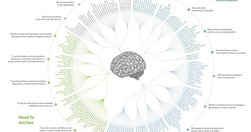
Yet another variation on the Top3ics format: exploring three facets of one topic, highlighting one outstanding resource (plus a few extra links) for each. Today’s theme... psychology
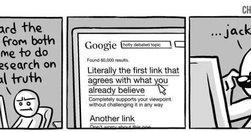
Wikipedia’s list of cognitive biases ... is a bit of a tangled mess... groups 175 biases into vague categories (decision-making biases, social biases, memory errors, etc) that don’t really feel mutually exclusive to me, and then lists them alphabetically... a simpler, clearer organizing structure to hang these biases off of... biases help us addr…

To some liberals, Donald Trump’s inauguration portends doom... to many conservatives, it’s a crowning moment ... as if each side is living in ... a different reality.... information avoidance... all of us ... ward off any new information that makes us feel bad, obligates us to do something we don’t want to do or challenges our worldview... we’re …

A common intuition is that the main goal of science communication is to present facts; once people encounter those facts, they will think and behave accordingly....in reality, just knowing facts doesn’t necessarily guarantee that one’s opinions and behaviors will be consistent with them... Convincing people that scientific evidence has merit and …
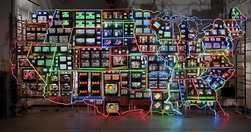
Anxious about... propaganda and fake news ... progressives are calling for an increased commitment to media literacy ... Others ... focus on expert fact-checking and labeling. ... fail to take into consideration the cultural context ... Understanding what sources to trust is a basic tenet of media literacy education... underlying assumption ... N…
Americans almost always think that the year coming to a close is the worst... Many misunderstand how the world is changing or ignore positive change... Surveys from long before 2016 — the era before the world turned “post-factual” — show the same levels of ignorance. .. There are several reasons for this...structure of the media means negative sub…
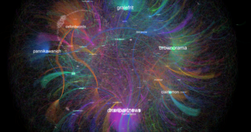
... no one has direct access to reality. The real world is nearly impossible to see in this maelstrom ... because human minds need to “construct” their own version of reality — and each of us does this within a community of shared experiences and beliefs... there are many social worlds and each is built on its own version of what is real and true.…

A work in progress from an upcoming eponymous post. Another experiment with the enewsletter format: some initial thoughts on this seemingly intractable problem, with some of the source materials I’m studying.

When someone tries to correct you... it backfires and strengthens those misconceptions ... the backfire effect makes you less skeptical of those things that allow you to continue seeing your beliefs and attitudes as true and proper... exerting effort dealing with the cognitive dissonance produced by conflicting evidence, we actually end up buildin…

Echo chambers aren’t just a product of the internet and social media, however, but of how those things interact with fundamental features of human nature... Understand these features of human nature and maybe we can think creatively about ways to escape them... our tendency to associate with people like us. Sociologists call this homophily.... t…

The brain ... is an “inference generating organ.” ... predictive coding, according to which perceptions are driven by your own brain and corrected by input from the world... When “the sensory information ... does not match your prediction... you either change your prediction—or you change the sensory information that you receive.” We form our bel…

fake news wouldn’t be a problem if people didn’t fall for it and share it. Unless we understand the psychology of online news consumption, we won’t be able to find a cure... online news readers don’t ... care about the importance of journalistic sourcing ... “professional gatekeeping.”... I mocked up a news site and showed four groups of partici…

Confirmation bias is usually described as a tendency to notice or search out information that confirms what one already believes, or would like to believe, and to avoid or discount information that’s contrary to one’s beliefs or preferences. This presidential election was undoubtedly the most contentious of any in the memory of most voters... Th…
Let’s take a break from the Donald, Facebook and the end of democracy, and try to focus on what’s important.
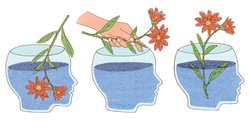
all of us, even highly intelligent people, are prone to irrationality. Across a wide range of scenarios, the experiments revealed, people tend to make decisions based on intuition rather than reason... those with a high I.Q. were, if anything, more prone to the conjunction fallacy... rationality, unlike intelligence, can be improved through traini…

when people are confronted with moral dilemmas, they do indeed respond differently when considering them in a foreign language than when using their native tongue.

repeating a lie, which is generally part of the debunking process, can reinforce it. ... confirmation bias leads people who want to believe something to believe it even more after they’ve been shown they’re wrong.